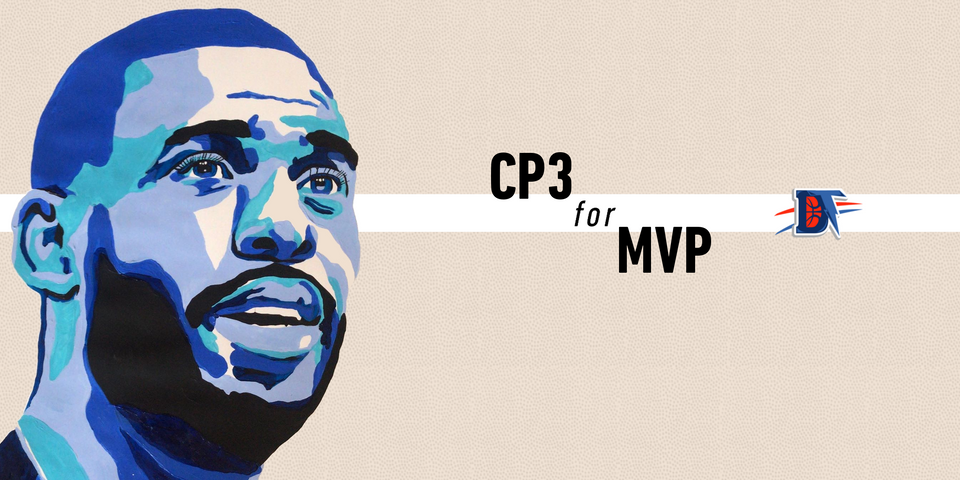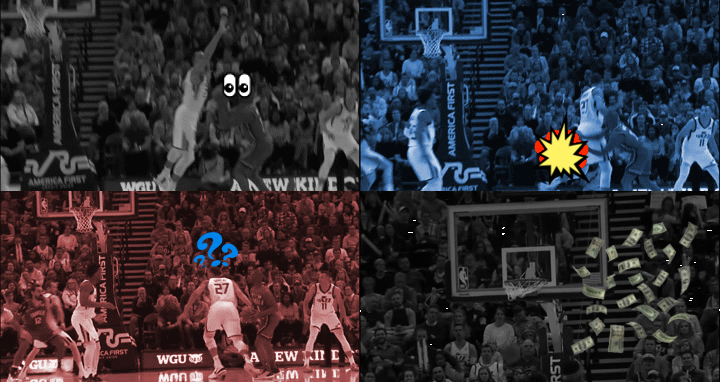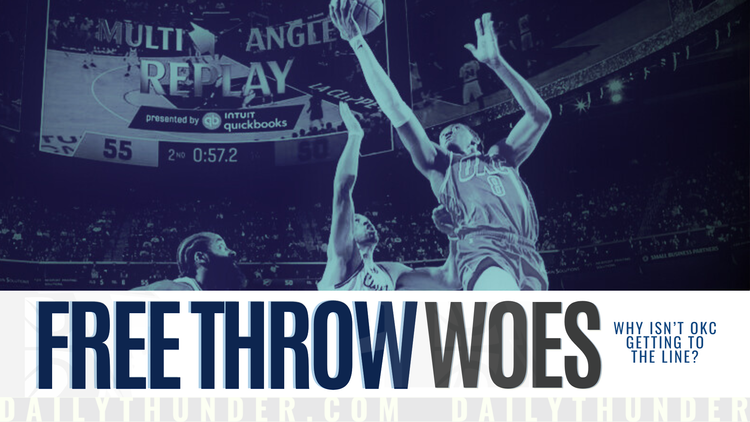Chris Paul: MVP of the Thunder

When Russell Westbrook was traded for Chris Paul, Sam Presti remarked that he was delighted—all things considered—that fans would get to witness another Hall of Fame point guard suiting up in Thunder blue. That optimism was met with cynicism in most corners (including here), on the assumption that the already-declining Paul was less than thrilled to move to a small market non-contender. The Oklahoma City fanbase, it was also assumed, would be slow to move beyond a cold appreciation for one of the team’s all-time foes. Paul hadn’t just been a frequent opponent, but a petulant one, and his irritability was cited as one of the reasons his union with James Harden in Houston came to an abrupt end.
As last season wrapped up, Dan Favale was not alone in saying that it was time to brace for a downturn in Paul’s production. Entering his fifteenth season at age 34, Paul was half of the remaining Banana Boat population with an NBA contract and role. Dwyane Wade retired, Carmelo Anthony languished without a home, and LeBron James found another age-defying elixir in Anthony Davis to pair with his impossible and historic resiliency as a dominant player. Paul–size and injury patterns working against him to boot–should have been headed toward the uncertain territory of his peers Melo and Wade, not inching in the direction of James’ perennial MVP-contention.
Hall of Famer or not, Paul was stuck in Oklahoma on a virtually immovable contract, and was bound to bring stress to the Thunder lockerroom. He would surely fail to endear himself to Thunder fans in the shadow of Westbrook’s electricity and loyalty.
The cynics were wrong.

As much as any of the myriad pleasant surprises for the Thunder—Shai Gilgeous-Alexander’s rapid development, Dennis Schröder’s swing to a two-way punisher, Billy Donovan’s retooled schematics panning out on both sides of the ball, LU DORT—Paul’s mastery at the helm has been the key to this feel good season.
Pound for pound, Chris Paul is still one of the best players in the game. While still running most of the Thunder’s action, he’s adapted nobly to the team’s three-point-guard lineups with an uptick in scoring (20 points per-36, his career best) and a decrease in his assist rate (33.4%, by far a career low). He’s nearly matched his career high in True Shooting Percentage, with his 61% mark putting him among the top-10 for guards in the category—a remarkable feat considering his heavy diet of midrange jumpers, typically the least efficient shot in the NBA.
Paul’s health has been essential for the Thunder to win 63% of their games while vying for a top-3 seed in the Western Conference. As unthinkable as the heights of OKC’s playoff hunt would have been before the season, so too has been the availability of Paul. He’s played in more games in this abbreviated season (63) than any of the past three. Having only sat once, he was on pace to play the most games of his career, save for a lone 2014-15 campaign when he suited up for all 82.
Like LeBron James, you could say Paul is declining gracefully in the typical parlance. But only if you note that his particular grace includes a ruthless collection of “layup!” taunts, humiliating nutmegs, comeback-capping rules exploitation, and embarrassing ball-to-the-backside fakes. Paul is aging like a fine wine, to borrow another LeBron metaphor, but don’t forget that wine is potent.
And like Westbrook before him, his late-game heroics have been inspiring. He leads the league in clutch scoring, and has iced so many of the Thunder’s league-leading comeback victories. There has been some poetry in this for Paul, who’s had some reputation-skewing moments of embarrassment against the Thunder in the playoffs. Hopefully no one will again selectively forget Paul is as win-hungry and clutch-ready as they come.
Is Chris Paul the best player in the league? No. But in the way that “most valuable” transcended the on-court brilliance of Russell Westbrook’s 2016-17 MVP campaign, Paul has meant more to OKC than the numbers and wins he’s orchestrated.
This period was supposed to represent the disappointing finality of a shattered era—with Westbrook (and Paul George) completing the starstudded exodus from Oklahoma City last summer. Instead, Chris Paul has stabilized the franchise and started to bridge the comedown period (which was actually already underway, given the lack of a second round playoff appearance in over three years) to the future, while the young reinforcements on the roster (Gilgeous-Alexander, Darius Bazley, Dort) and off it (draft pick 1, draft pick 8, draft pick 114) get nearer and less abstract.
Thunder excellence, it turns out, did not live and die with one player. Paul won’t receive many first- or even second-place MVP votes, but Thunder fans are right to believe that he belongs in the proverbial conversation. Mocked for his enormous contract, he’s been the epitome of value for a team and city that was perhaps more ready to embrace something entirely new than they realized. Paul has been the face of change, the emblem of the chase for wins regardless of setting, scoreboard, or having your druthers. He is the MVP of the 2019-20 Oklahoma City Thunder.


